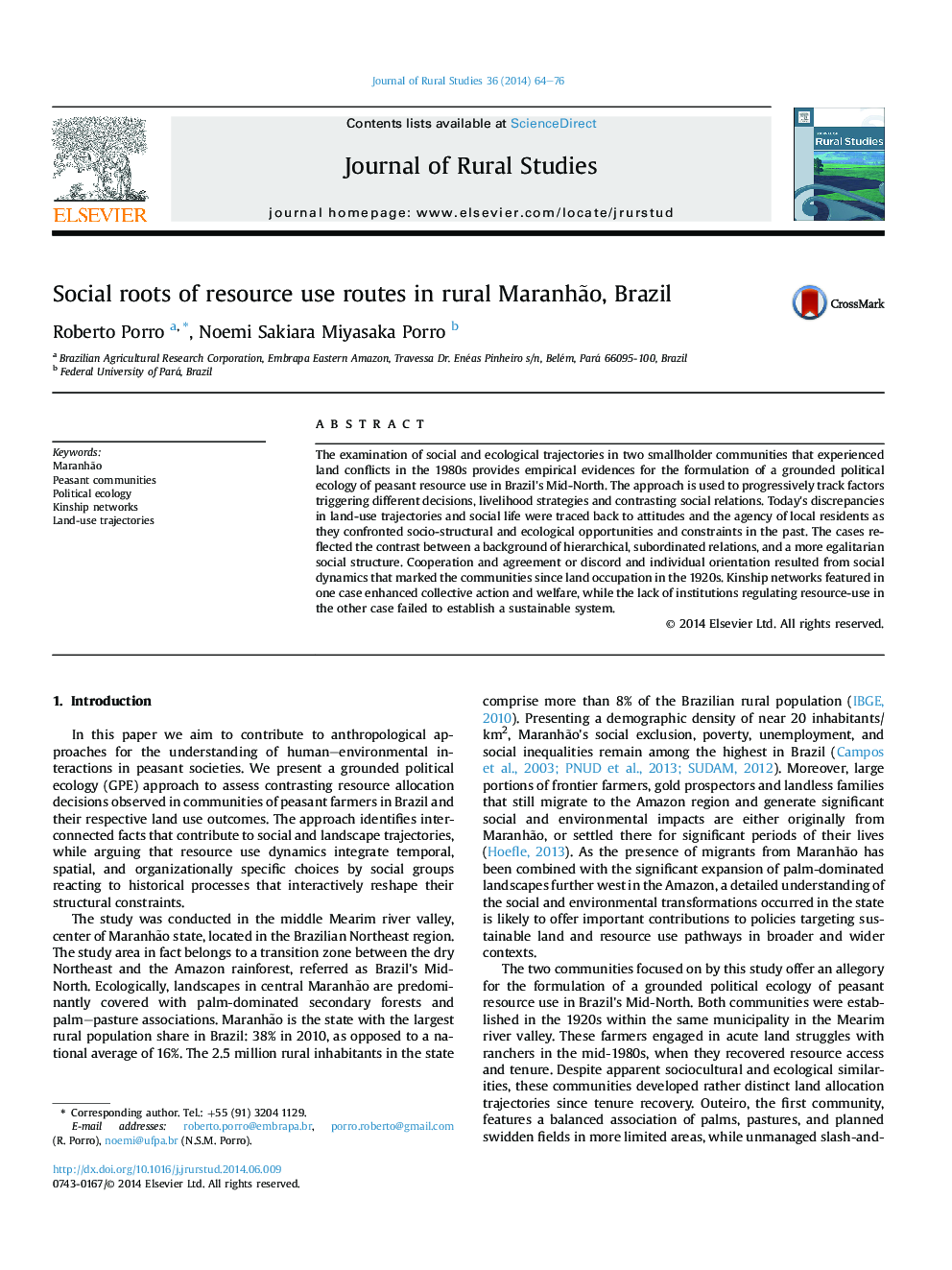| Article ID | Journal | Published Year | Pages | File Type |
|---|---|---|---|---|
| 6545721 | Journal of Rural Studies | 2014 | 13 Pages |
Abstract
The examination of social and ecological trajectories in two smallholder communities that experienced land conflicts in the 1980s provides empirical evidences for the formulation of a grounded political ecology of peasant resource use in Brazil's Mid-North. The approach is used to progressively track factors triggering different decisions, livelihood strategies and contrasting social relations. Today's discrepancies in land-use trajectories and social life were traced back to attitudes and the agency of local residents as they confronted socio-structural and ecological opportunities and constraints in the past. The cases reflected the contrast between a background of hierarchical, subordinated relations, and a more egalitarian social structure. Cooperation and agreement or discord and individual orientation resulted from social dynamics that marked the communities since land occupation in the 1920s. Kinship networks featured in one case enhanced collective action and welfare, while the lack of institutions regulating resource-use in the other case failed to establish a sustainable system.
Keywords
Related Topics
Life Sciences
Agricultural and Biological Sciences
Forestry
Authors
Roberto Porro, Noemi Sakiara Miyasaka Porro,
